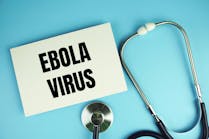FDA committee meets to evaluate booster doses of COVID-19 vaccines
The U.S. Food and Drug Administration’s (FDA) Vaccines and Related Biological Products Advisory Committee is scheduled to meet Friday to discuss Pfizer-BioNTech’s application for approval of a booster dose of the companies’ COVID-19 vaccine.
Meanwhile, Moderna, which also developed an mRNA vaccine, released a new analysis suggesting that its vaccine also wanes in effectiveness over time, supporting the case for booster shots.
The FDA meeting will occur against the backdrop of mixed opinions from experts about the need for booster shots for fully vaccinated people who are not immunocompromised. Top federal health officials have argued that vaccine effectiveness wanes over time, according to the New York Times, while other experts, including several FDA career scientists, have said the evidence does not demonstrate a need for booster doses at this time for healthy fully vaccinated people.
The Biden Administration had planned to begin offering booster doses on September 20 for everybody, beginning eight months after a second dose of one of the mRNA vaccines. But that plan is dependent on the FDA approving a third dose of the vaccines. The Centers for Disease Control and Prevention’s (CDC) Advisory Committee on Immunization Practices (ACIP) would then need to recommend the third dose.
Moderna shared a new analysis of follow-up through 1 year in the Phase 3 COVE study, suggesting a lower risk of breakthrough infection in participants vaccinated more recently (median 8 months after first dose) compared to participants vaccinated last year (median 13 months after first dose). Moderna said manuscripts summarizing both findings have been posted to preprint servers and will be submitted for peer-reviewed publication.
“The increased risk of breakthrough infections in COVE study participants who were vaccinated last year compared to more recently illustrates the impact of waning immunity and supports the need for a booster to maintain high levels of protection,” said Stéphane Bancel, Chief Executive Officer of Moderna.
The new analysis looked at COVID-19 cases among vaccinated participants in the open-label portion of the Phase 3 COVE study between July 1, 2021, and August 27, 2021, with a goal of quantifying the impact of waning immunity in the face of the Delta surge in the United States, Moderna said. The analysis compared participants initially randomized to mRNA-1273 (vaccinated from July-October 2020; n=14,746; median follow-up of 13 months since first dose) against participants initially randomized to placebo who were crossed over and vaccinated following emergency use authorization (vaccinated from December 2020-March 2021; n=11,431; median follow-up of 8 months since first dose).
In the analysis, 88 breakthrough cases of COVID-19 occurred in the more recently vaccinated group (49.0 cases per 1,000 person-years) compared to 162 cases in the group vaccinated last year (77.1 cases per 1,000 person-years). The reduction in incidence rates for participants vaccinated more recently compared to participants vaccinated last year was 36%. A Cox proportional hazards model showed similar results after adjusting for age and risk factors for severe COVID-19. Fortunately, only 19 severe cases were observed. While not significant, there was a numerical trend towards a lower rate of severe cases in the group vaccinated more recently (3.3 per 1,000 person-years) compared to the group vaccinated last year (6.2 per 1,000 person-years).
Pfizer also submitted data to support its application for approval of a third dose of its mRNA COVID-19 vaccine. In the context of the now-dominant Delta variant, the company said recent data from Israel and the United States suggests that vaccine protection against COVID-19 infection wanes approximately 6 to 8 months following the second dose. However, the company said the evidence suggests that this is due to waning vaccine effectiveness rather than the Delta variant’s ability to escape vaccine protection.





